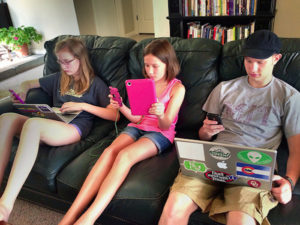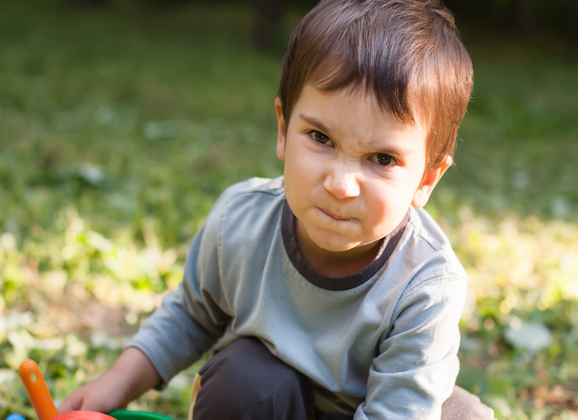 We’ve all seen it. A headline about another teen who has turned to violence in an effort to release their frustration from the battles they’ve been fighting within themselves.
We’ve all seen it. A headline about another teen who has turned to violence in an effort to release their frustration from the battles they’ve been fighting within themselves.
As outsiders it’s easy to speculate why the child in question acted the way they did, and how they came to their rationalization before acting on their violent attack. But what seems to be often overlooked is how we as adults are raising a generation who are learning violence is an appropriate response to frustration.
Children are exposed to virtual reality more now than ever before, and with devices like smartphones and tablets kids are able to have instant gratification without any physical interaction.
Jerri Shields is a licensed professional counselor in Scottsdale, specializing in a range of therapies such as mental health counseling and psychotherapy. Shields works closely with adolescents and young adults addressing issues such as anger, fear, and anxiety as well as helping children learn how to cope with their feelings in a healthy manner.
We start developing coping skills from the day we are born and interaction builds the ability to develop healthy coping skills versus unhealthy coping skills. As Shields explains, every single one of us has coping skills, it’s just a matter of whether or not those skills are being executed in a healthy manner.
For example, a healthy coping skill would be going for a jog after a stressful day at work, whereas an unhealthy coping skill would be drinking excessive amounts of alcohol.
Shields notes that in today’s age we are also seeing more kids lacking a development in verbal skills and a tolerance for frustration. And with all the technology so readily available, kids are learning to be social through a screen versus looking someone in the eye.
“Excess in anything isn’t going to be healthy,” Shields said, “human beings need real time connection.”
 And real time connection includes families learning to actually engage with one another versus sitting at the same dinner table while everyone is on their phones. This behavior creates serious ramifications of not having the social and eye contact adolescents require, notes Shields.
And real time connection includes families learning to actually engage with one another versus sitting at the same dinner table while everyone is on their phones. This behavior creates serious ramifications of not having the social and eye contact adolescents require, notes Shields.
But there are more than just a lack of real time socialization skills our younger generations are lacking. Shields says what parents should really be checking are their kids’ diets.
“In this fast paced, anxiety provoking world are we just eating carbs?” Shields said. “That goes to ups and downs in insulin levels, which brings out cortisol, which then brings out emotional ups and downs. How are kids suppose to deal with those ups and downs? A good coping skill would be eating more protein.”
And along with a balanced diet children need more physical exercise and face-to-face connections with other kids.
However, one major factor seen in the generation of social media and online everything is how bullying on the playground has migrated to online bullying, and the devastating ways kids are attempting to cope with the pain they feel.
“Kids do not have the abstract ability to completely understand consequences,” Shields said, which could be one factor as to why kids turn to violence to express their anger. “Rejection is one of the worst human emotions a person can feel. And we’ve got a generation that has a low tolerance for frustration. You put those together and you’re looking at a dynamite.”
Today there is little accountability for those who participate in online bullying, and therefore understanding the possible consequences are not at the forefront of a young adult’s mind. When some kids who have a strong sense of self, and emotional and loving support from their friends and family, are able to let teasing roll off their shoulders, other kids who are not as equipped in those areas turn to other outlets, and as we’ve seen some kids turn to pulling the trigger.
And in the age when every T.V. show, video game or news network is showing blood, crime and violence, a desensitized generation of youth is to be expected. However, just because our youth may be desensitized to all the blood and gore does not mean their bodies are desensitized to fear. In fact Shields notes that she has seen more kids with anxiety and fear than ever before.
So, how do we start providing our children with the building blocks for healthy coping skills and person-to-person relationships?
By taking away the notion of immediate gratification, and teaching our children how to take accountability for their actions and apologize.
“We don’t have to wait for almost anything so, when we do have to wait for almost anything, including friendships, including well earned approval, we get frustrated when it doesn’t just happen,” Shields said. “We’re not teaching our kids how to fail well. Our kids today would rather quit than continue.”
And not only are children becoming accustomed to instant gratification, they are showing that they would rather not take accountability for their actions, and would rather place blame on someone else.
“When are we teaching accountability?” Shields said, “how do we teach someone to apologize? And an apology is ‘I’m sorry, I was wrong,’ not, ‘I was wrong, but.’”

















